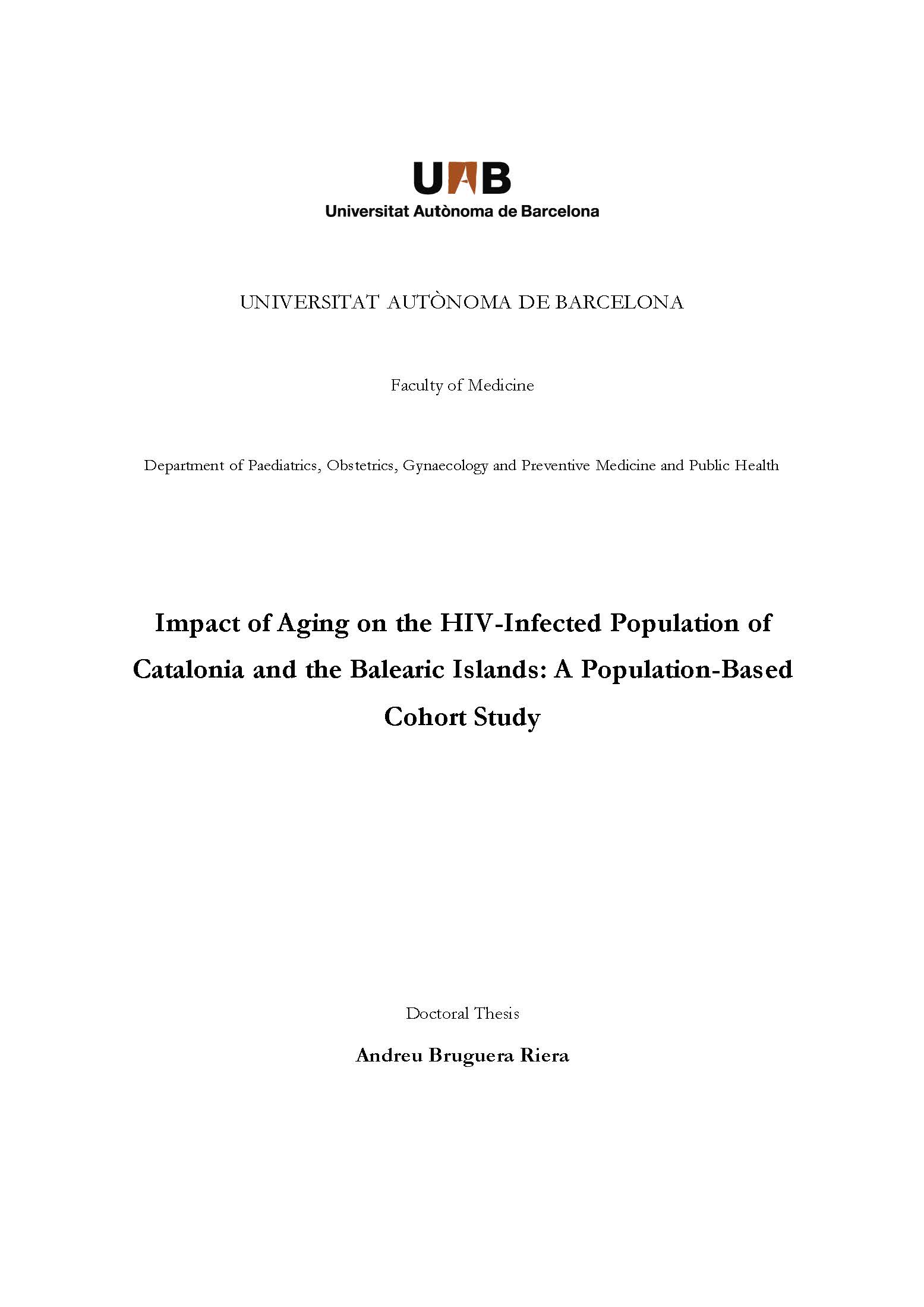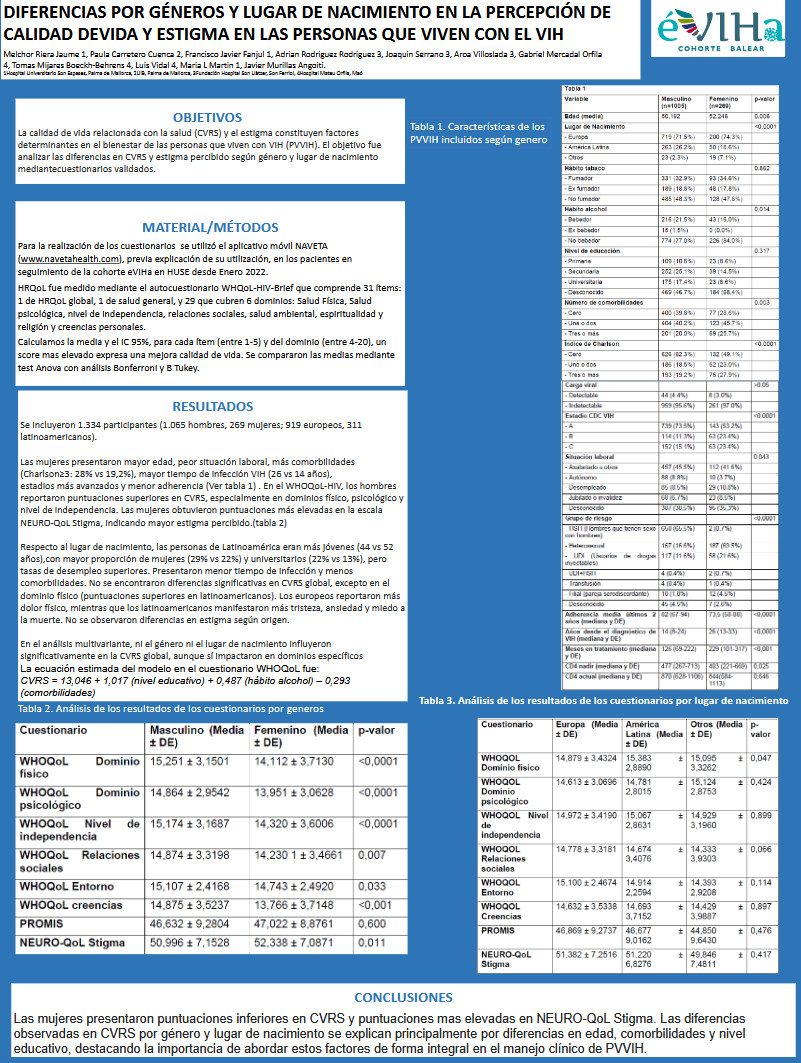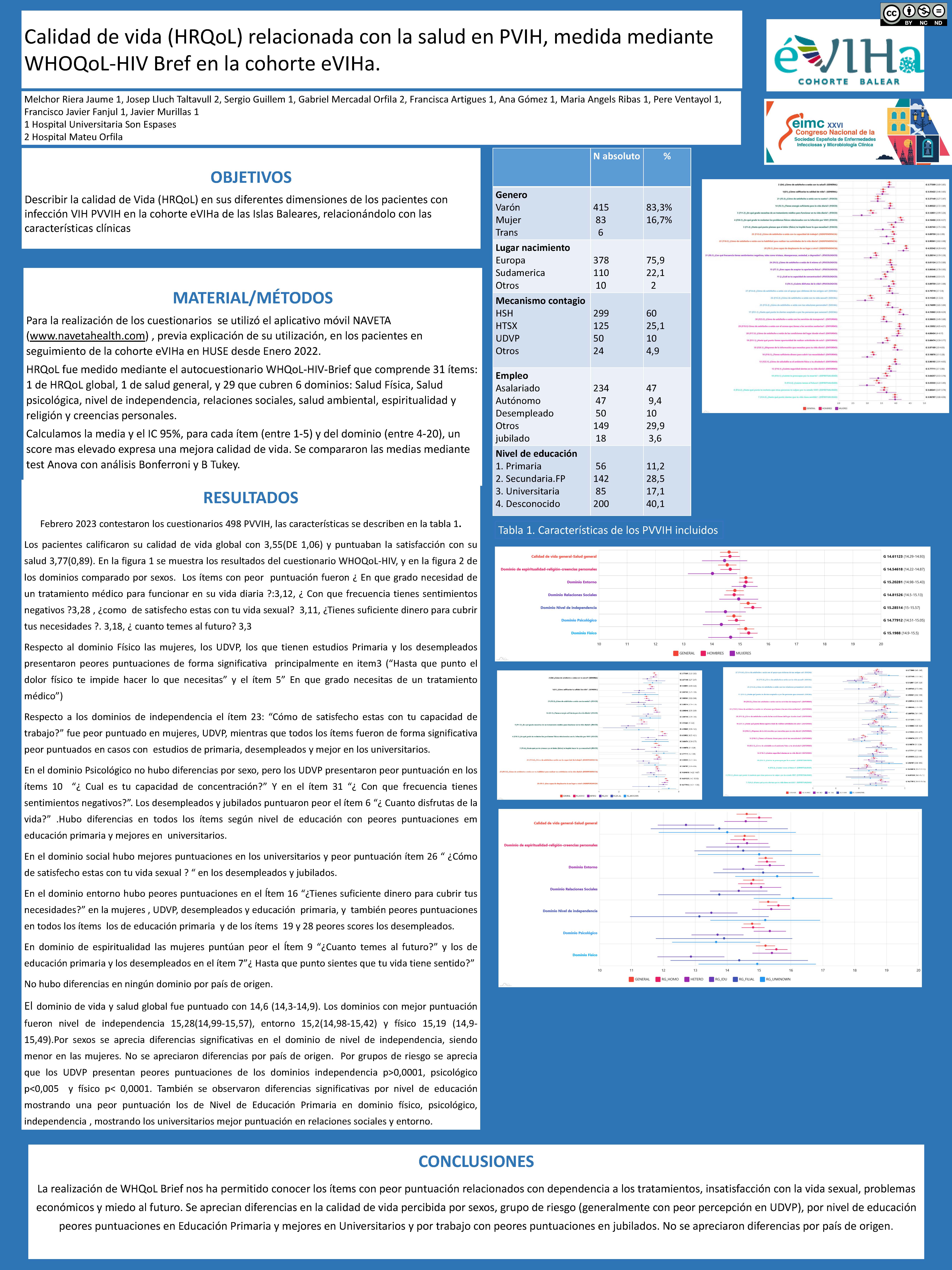Catàleg general VIH

Predictors of poor health-related quality of life among people living with HIV aged =60 years in the PISCIS cohort: findings from the Vive+ project
Resum
Introduction: Advancements in and accessibility to effective antiretroviral therapy has improved the life expectancy of people living with HIV, increasing the proportion of people living with HIV reaching older age (=60 years), making this population's health-related quality of life (HRQoL) more relevant. Our aim was to identify the determinants of poor HRQoL in people living with HIV aged =60 years and compare them with those of their younger counterparts. Methods: We used data from the 'Vive+' study, a cross-sectional survey conducted between October 2019 and March 2020, nested within the PISCIS cohort of people living with HIV in Catalonia and the Balearic Islands, Spain. We used the 12-item short-form survey (SF-12), divided into a physical component summary (PCS) and a mental component summary (MCS), to evaluate HRQoL. We used the least absolute shrinkage and selection operator for variable selection and used multivariable regression models to identify predictors. Results: Of the 1060 people living with HIV (78.6% males) who participated in the study, 209 (19.7%) were aged =60 years. When comparing older people living with HIV (=60 years) and their younger counterparts, older people exhibited a worse PCS (median 51.3 [interquartile range {IQR} 46.0-58.1] vs. 46.43 [IQR 42.5-52.7], p < 0.001) but a similar MCS (median 56.0 [IQR 49.34-64.7] vs. 57.0 [IQR 48.9-66.3], p = 0.476). In the multivariable analysis, cognitive function correlated with a PCS (ß correlation factor [ß] -0.18, p = 0.014), and depressive symptoms and satisfaction with social role correlated with an MCS (ß 0.61 and ß -0.97, respectively, p < 0.001) in people living with HIV aged =60 years. Conclusion: Depressive symptoms, poor cognitive function, and lower satisfaction with social roles predict poorer HRQoL in older people living with HIV. These factors need to be considered when designing targeted interventions.- Tema:
Autoria:
BRUGUERA RIERA, Andreu; EGEA CORTÉS, Laia; MESÍAS GAZMURI, Jocelyn; PALACIO VIEIRA, Jorge; GARCÍA FORERO, Carlos; MIRANDA SÁNCHEZ Cristina; SAUMOY, María; FERNÁNDEZ GONZÁLEZ, Emma; NAVARRO, Gemma; ORTÍ LLAVERÍA, Amat-Joaquim; MIRÓ MEDA, José María; CASABONA BARBARÀ, Jordi; REYES URUEÑA, Juliana
Fitxa bibliogràfica
- Any de publicació:
- 2024
- Publicació:
- Oxford [etc.] : Blackwell Publishing
- En:
- Número:
- Vol. 25, no. 4 (2024), p. 429-439
- Format:
- Article
Continguts relacionats
També et pot interessar
-
Impact of aging on the HIV-infected population of Catalonia and the Balearic Islands: a population-based cohort study
-
Diferencias por géneros y lugar de nacimiento en la percepción de calidad de vida y estigma en las personas que viven con el VIH
-
Calidad de vida (HRQoL) relacionada con la salud en PVIH, medida mediante WHOQoL-HIV Bref en la cohorte eVIHa





